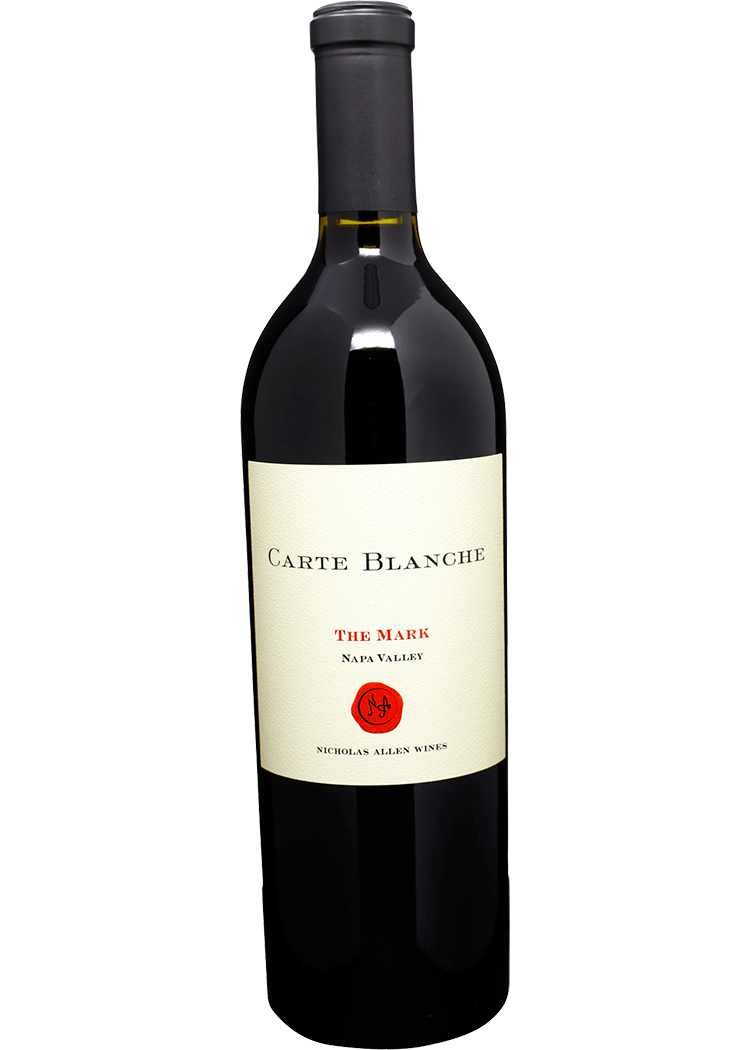tap to enlarge
Carte Blanche The Mark Red Napa Valley, 2017
750ml
$199.99
+CRV
Mix 6 for $179.99 each
*Price, vintage and availability may vary by store.
*Price, vintage and availability may vary by store.
Product Highlights
Jeb Dunnuck-Napa, CA- "This smoky, gravelly mineral (almost Graves-like) effort has loads of ripe dark fruits as well as medium to full body, a complex, nuanced bouquet, terrific purity, and integrated, ripe tannins. It's a classic, balanced Bordeaux blend from Napa Valley..."
Red BerryRaspberry
Product Details
OVERVIEW
Geography
It’s the quality and reputation of Napa Valley wine that inspire crowds of tourists to visit Napa Valley wineries dotting Highway 29, nestled between the Mayacamas mountain range to the west and the Vaca Range to the east.
Despite its limited acreage, Napa Valley is a diverse growing region with many microclimates and varied soil types. Over the 30 miles from the cool San Francisco Bay north through Oakville, Rutherford, St. Helena and Calistoga, the average temperature can increase 10 percent. So cool-weather varieties like Chardonnay and Pinot Noir thrive in Carneros, at the southern end of the region; warm-weather grapes like Cabernet Sauvignon, Merlot and Sauvignon Blanc fare better in the north.
Varietal / Type
Red grapes produce an amazing array of red wine types: from the boldest, heartiest big reds, to elegant and structured dry red wines, to sweet and simple picnic sippers. So much depends on where grapes are from and what the winemaker does with them, but the most important factor is the variety of the grape itself.
There are the familiar international red varieties – Cabernet Sauvignon, Pinot Noir, Merlot and more – produced in the world’s top winemaking regions. Then there are regional red varieties, which produce types of red wine nearly synonymous with their place of origin, such as Sangiovese, from Italy, and Tempranillo, from Spain. There are hundreds more red grape varieties regularly used to make wine around the globe.
Most red wine varietals fare best in warmer climates, where they can ripen fully before harvesting. So climate and soil – as well as market demand – determine the best grape types to plant in a particular vineyard. In Europe, centuries of tradition, trial and error determined what wine grapes grew best where, and modern regulations have enshrined those winemaking practices into law.
Our red wine guide details the flavor profiles and regions of the most popular red varieties – plus a few you may not yet know. Use it as a road map for Total Wine & More’s selection of more than 8,000 wines. You’ll learn everything there is to know about your favorite red wines, and we’re sure you’ll find some new red wines to love.
